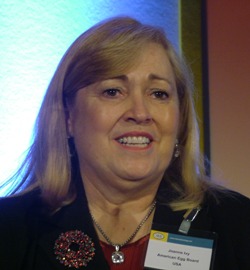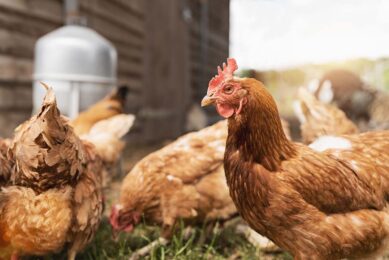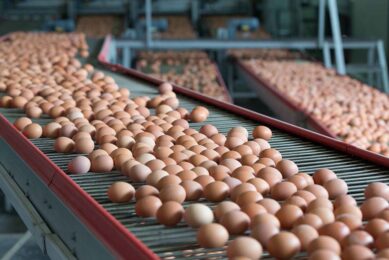IEC conference in London: Taking steps to the future

The future of egg production is permanently on the agenda of the International Egg Commission (IEC). Apart from current matters, the corporate social responsibility theme was adopted by the members recently. Together they discuss about meeting with and responding to global demands. Such as at their latest conference in London.
By Ad Bal
| Joanne Ivy: “IEC has already been working to provide a common structure for egg businesses to build their CSR programme around”. |
“We as egg producers play a strong role in global food production. In this respect we have a corporate social responsibility (CSR)”, chairman Joanne Ivy said in her opening statement to the conference of the International Egg Commission (IEC) in London, UK, from April 3-5. For this reason, the IEC has created a CSR working group with members representing all parts of the world. Their objective is to find a way to as good as possible meet with the goals that have been set earlier.
Apart from the initiatives that the IEC is taking, a wide range of speakers addressed the audience. Such as professor David Hughes of the Imperial College in London, emphasising the need for being prepared for the future. Consumers in the developed world will be demanding food that is produced in a sustainable way. An example is retail giant Wal-Mart that has announced global sustainable agriculture goals. “We and our suppliers are to become carbon neutral in the not to far away future”, Hughes stated. “The green train has left the station and you should be aware of that”, he concluded.
Nan-Dirk Mulder of Rabobank International addressed the volatility of global commodity prices and their impact on future egg demand, production and global trade. According to Mulder, in the upcoming ten years, an additional 500 million tonnes of grains and oilseeds are needed to meet global demands, of which 190 tonnes for animal production.
Jil Benson of JS West in California, USA, is keeping 1,8 million layers. She told the audience about her experiences of gradually moving to alternative systems. After all, California will have to deal with Proposition 2 from 2015, meaning that hens may no longer be kept in traditional cages. Currently JS West keep their hens in various systems and they have their first experiences with enriched systems. “Initially the text about what should be done, was very vague”, Benson stated. However, California egg producers formed their association and gradually found clarity. JS West reviewed the options and is moving forward. “Teaching consumers about modern farming practices is important to create awareness and acceptance about these new practices” Benson concluded.
Join 31,000+ subscribers
Subscribe to our newsletter to stay updated about all the need-to-know content in the poultry sector, three times a week. Beheer
Beheer








 WP Admin
WP Admin  Bewerk bericht
Bewerk bericht